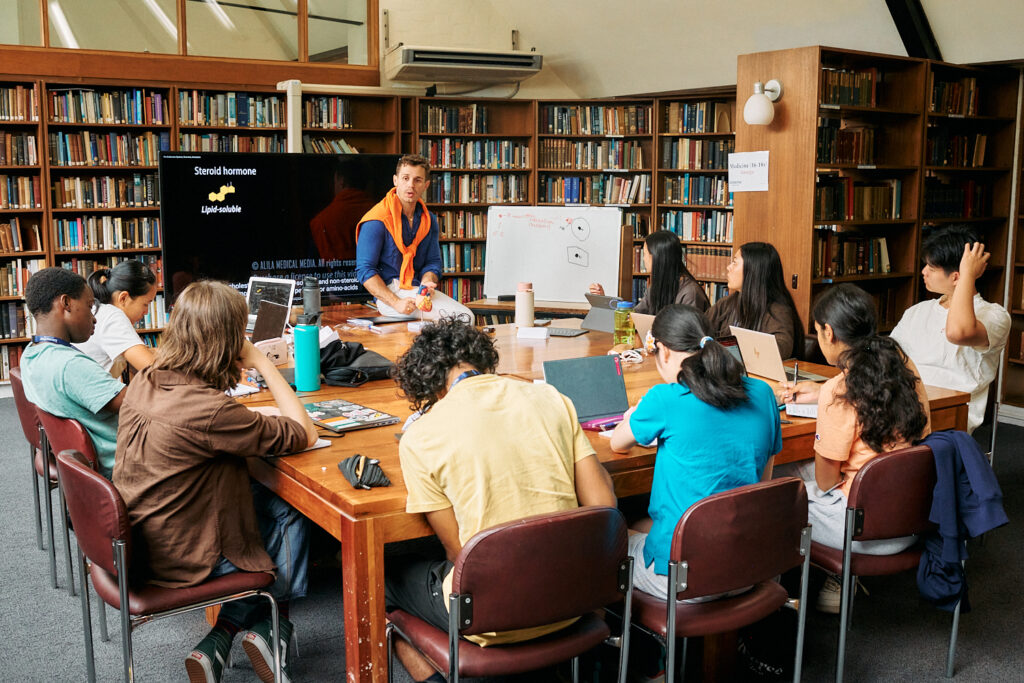Earning the right number of UCAS points can open more doors to UK universities—sometimes the difference between an offer or a near-miss comes down to just a few. While most students know about getting points through A levels and other core qualifications, understanding how to get extra UCAS points—especially through non-mainstream or supplemental routes—is crucial for giving your application that competitive edge.
Related reading:
- Need points from A levels or the most common routes? See How Many UCAS Points Is an A Level?
- Wondering what point totals mean in practice? See What Is 112 UCAS Points In Grades?
- For the full overview, try our UCAS Tariff Points Guide
UCAS Points Through Mainstream UK Qualifications
Most UK students gain their UCAS points by completing A levels, BTECs (in place of or with A levels/IB), Scottish Highers/Advanced Highers, or the International Baccalaureate. These routes form the foundation of most university applications.
But if you:
- Need extra points to reach a specific target,
- Want to strengthen your application with additional recognition,
- Or wish to stand out with special skills and interests,
…then the following 15 methods are where you should focus. These options can be completed alongside your A levels or IB, and are accepted by a wide range of UK universities for tariff points—helping push your application above the rest.
Quick and Effective Ways to Earn Extra UCAS Points
1. Complete the Extended Project Qualification (EPQ)
What is it?
The EPQ is an independent research project on a topic of your choice—write a dissertation, conduct an experiment, create an artefact, or produce a performance.
Points: A* = 28, A = 24, B = 20, C = 16, D = 12, E = 8.
How hard is it?
Challenging but highly flexible: you set your own question and work at your own pace, with some supervisor input.
Perfect for students who…
Enjoy independent study, want to showcase passion for a subject, and need a talking point for personal statements or university interviews.
2. Add BTEC Nationals or Cambridge Technicals Alongside A Levels
What is it?
BTEC National Extended Certificates (or Cambridge Technicals) can be taken in addition to A levels – subjects range from Business to Health & Social Care, IT, and more.
Points: Up to 56 for a top D* grade (equivalent to A* at A level).
How hard is it?
Manageable if you’re organised – usually coursework-based, they require steady effort but less exam pressure.
Perfect for students who…
Want coursework credit, are hands-on learners, or want to blend academic and practical skills for university/career.
3. Take the Core Maths Qualification
What is it?
A Level 3 maths qualification, usually one lesson per week for 1-2 years. Builds real-world numeracy skills.
Points: A = 20, B = 16, C = 12, D = 8, E = 6.
How hard is it?
Less challenging than full A level maths, more applied/problem-based.
Perfect for students who…
Aren’t taking A level maths but want to show number skills, or need math for certain social science, science, or business degrees. Find out more here.
4. Pass the Advanced Free Standing Maths Qualification (FSMQ)
What is it?
The AQA Additional Maths FSMQ is a short course (Level 3) in advanced maths – often completed in Year 11 or alongside A levels.
Points: Up to 20 (A grade).
How hard is it?
A good step between GCSE and A level for maths-fans – content is tougher than GCSE but lighter than A level.
Perfect for students who…
Want extra maths proof for STEM applications, or can’t fit full A level maths into their timetable.
5. Complete Graded Music Exams (ABRSM, Trinity, LCME)
What is it?
Practical, theory, or performance exams in instruments/voice (Grades 6–8).
Points: Up to 30 for Grade 8 Distinction.
How hard is it?
Challenging – reaching Grade 8 requires years of regular practice, but earlier grades offer points too.
Perfect for students who…
Have been learning music for a while; want to show musical talent; add creative flair to STEM, humanities, or medical applications.
6. Immerse Education Online Research Programme (ORP)
What is it?
An accredited, university-level research programme run online, culminating in a formal research paper and awarding 8 UCAS points on completion.
How hard is it?
Moderately challenging – combines independent research with structured mentoring and feedback from top academics.
Perfect for students who…
Want unique research experience, something impressive for personal statements/interviews, and a boost equivalent to the difference between two A level grades. Find out more: Immerse Online Research Programme.
7. Achieve Dance, Drama, or Sports Qualifications (e.g. RAD, LAMDA, or Speech & Drama)
What is it?
Nationally/internationally recognised grades in dance (RAD), drama (LAMDA), or sports coaching/refereeing.
Points: Many awards (at highest levels) offer 8-30 points depending on grade achieved.
How hard is it?
Requires sustained after-school clubs/practice and external exams, typically over several years.
Perfect for students who…
Already pursue arts or sport as enrichment; want a creative CV edge or are applying for drama/dance/PE degrees.
8. Earn UCAS Points with the Cambridge Pre-U Principal Subject
What is it?
The Cambridge Pre-U Principal Subject is an advanced sixth-form qualification available in several subjects, including modern languages. It’s an alternative to A levels and highly respected for university admissions.
Points: D3 = 56 UCAS points (equivalent to A* at A level), with tariff points awarded for lower grades as well.
How hard is it?
It’s designed for ambitious students – the curriculum often explores topics in greater depth and is assessed differently from A levels, making it more challenging and academically rigorous.
Perfect for students who…
- Are strong linguists seeking to stretch themselves academically.
- Want to boost their UCAS points total for competitive university courses.
- Are interested in taking a subject—such as a language—to an advanced level alongside or instead of A levels.
9. Take Level 3 Certificates from Exam Boards (AQA, OCR, City & Guilds)
What is it?
Specialist Level 3 awards (e.g. AQA Baccalaureate, City & Guilds TechBac, OCR Cambridge Technicals) can supplement main studies.
Points: Vary, often 8–30 depending on award/type.
How hard is it?
Usually similar difficulty to EPQ or AS levels—check for compatibility with your school/college.
Perfect for students who…
Love niche subjects or vocational areas and want a broader portfolio.
10. Earn UCAS Points Through Professional/Technical Awards
What is it?
Certain professional and technical qualifications – such as accounting, IT, and engineering certifications – are recognised by UCAS and can contribute tariff points to your university application. Examples include the AAT Certificate/Diploma in Accounting, Cisco networking certifications, and CompTIA IT qualifications.
These courses generally combine practical assessments, coursework, and exams. Designed to develop job-ready skills, they focus on real-world applications relevant to their industries. While not offered in all schools, many further education colleges and vocational centres provide these qualifications. Some students take them alongside A levels or BTECs to broaden their expertise and UCAS points.
Points
For instance, the AAT Level 3 Diploma in Accounting can earn up to 56 UCAS points. Points for other certifications like Cisco and CompTIA vary, so check the UCAS tariff and university admissions policies.
How hard is it?
The challenge depends on the course and prior experience but tends to emphasise applied knowledge over purely academic theory. Suitable for students who prefer hands-on learning with clear professional relevance.
Perfect for students who…
- Are aiming for careers in business, finance, IT, or engineering.
- Want to complement academic study with professional skills.
- Prefer coursework and practical assessments rather than traditional exams.
- Wish to enhance their UCAS points with recognised vocational qualifications.
11. Secure T-Levels (or T-Level Components)
What is it?
T-Levels are new, two-year, technical qualification routes (equivalent to 3 A levels) in fields like Digital, Health, Science & Construction.
Points: Full T-Level, D* = 168. Many students can add individual components or practical certificates for extra points.
How hard is it?
Rigorous – blends classroom work and extended industry placements.
Perfect for students who…
Are practical, want workplace experience, or plan to study a technical or vocational degree.
12. Take Graded Exams in Speech and Drama or Communication (e.g. ESB, Trinity Communication Skills)
What is it?
Communication, public speaking, and drama exams at Level 3 – offered by English Speaking Board, Trinity College London, and others.
Points: Up to 24-30 at the highest grades.
How hard is it?
Preparation takes extracurricular commitment but is rewarding – improves confidence, essay presentations, and future interviews.
Perfect for students who…
Aspire to law, teaching, politics, media, or want to boost soft skills for any degree.
13. Complete the Arts Award (Gold)
What is it?
The Arts Award requires students to complete a creative personal project – e.g., an exhibition, play, or outreach event – that involves planning, creating, and reflecting.
Points: Gold Award (Level 3) = 16 UCAS points.
How hard is it?
Challenging but flexible – ideal as an extended extracurricular in visual or performing arts.
Perfect for students who…
Love creative leadership, want to stand out in art, drama, design, or education applications.
14. Pass Open University (or Other University) Short Courses
What is it?
Level 3 short courses from the Open University or selected universities; topics from Languages, Science, Law to Coding.
Points: Typically 10–30 points depending on course length/workload.
How hard is it?
Requires self-motivation and time management, but highly respected evidence of university readiness.
Perfect for students who…
Want extra independence, love a specific subject, or want a taster of university learning.
15. Take the AQA Level 3 Extended Certificate in Applied Subjects
What is it?
A suite of practical, applied qualifications in subjects like Applied Science or Business. Coursework-heavy, mirroring BTEC/Techs.
Points: A* = 28, A = 24, B = 20, C = 16, D = 12, E = 8.
How hard is it?
Similar in workload to the EPQ; requires consistent coursework rather than final exams.
Perfect for students who…
Excel at ongoing assessment and want vocational breadth alongside academic study.
Join the Immerse Education 2025 Essay Competition
Follow the instructions to write and submit your best essay for a chance to be awarded a 100% scholarship.

Tips and Further Reading
- Consult your school or college before starting a new qualification—timetables and exam registration can vary.
- Double-check that your target universities accept your chosen extras—tariff points are only part of the story!
- For a full breakdown of points for A levels, see How Many UCAS Points Is an A Level?
- To understand what point totals mean in grades, visit What Is 112 UCAS Points In Grades? Explained
- For complete details on the tariff system and further qualification ideas, see the UCAS Tariff Points Guide
By considering these 15 effective ways to get extra UCAS points – and cross-referencing our expert guides – you can boost your university applications with confidence and flexibility. Each extra point truly can make a difference!

























